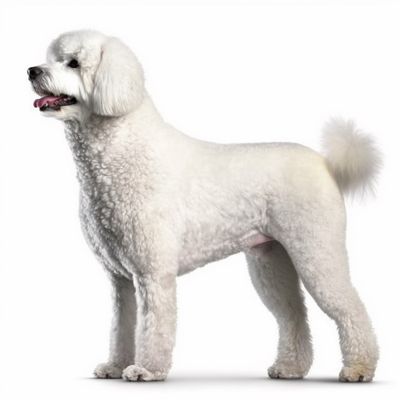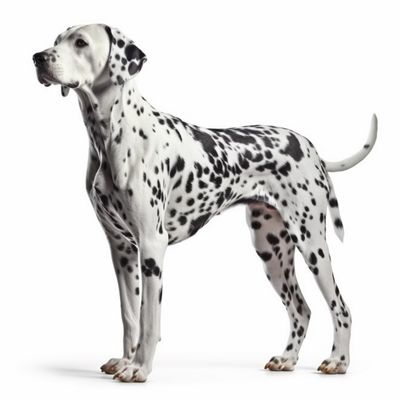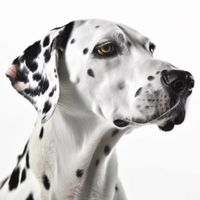Bichon Frise - vs - Golden Retriever - vs - Dalmatian

Bichon Frises are small dogs, weighing 10-20 lbs and standing 9.5-11.5 inches tall.
Bichons have a moderate energy level, enjoying playtime and cuddles in equal measure.
Daily exercise, like walks or playtime, keeps Bichons happy and helps prevent boredom.
Bichons are intelligent and trainable, but may require patience and consistency.
Bichons are smart dogs that enjoy learning new commands, tricks, and problem-solving.
Bichons adapt well to various environments, from apartments to larger homes.
Bichons are gentle, playful, and affectionate, making them excellent companions for children.
Bichons generally get along well with other pets, including dogs and cats, when socialized properly.
Bichons can tolerate cold weather, but it's important to provide proper shelter and warmth.
Bichons can handle warm climates, but ensure they have access to shade, water, and avoid excessive exercise.
Bichons have a low-shedding coat, making them a good option for people with allergies.
Bichons require regular grooming to maintain their curly coats, including brushing, trimming, and bathing.
Bichon Frises have average bark tendencies and may bark for various reasons, such as alerting their owners or during playtime.
Bichon Frises are generally healthy dogs but may still require regular veterinary checkups and preventative care.

Golden Retrievers weigh 55-75 lbs and stand 21-24 inches tall, boasting a strong and balanced build.
Goldens are enthusiastic and lively, always up for a game of fetch or a long walk in the park.
Daily exercise like walks, runs, or playtime is essential for a healthy and happy Golden.
Intelligent and eager to please, Goldens are a dream to train for both first-time and experienced owners.
Golden Retrievers are fast learners, excelling in problem-solving and grasping new skills.
Goldens adapt well to various living situations, from urban apartments to spacious rural homes.
Loving and patient, Golden Retrievers are gentle playmates and excellent family dogs.
Goldens are sociable and friendly, getting along with other dogs, cats, and even smaller pets.
Their dense double coats help them tolerate cold weather, but they still need warmth and shelter.
Goldens can cope with hot climates, but ensure they have shade, water, and avoid overexertion.
Goldens shed, especially during seasonal coat changes. Regular grooming helps manage shedding.
Routine brushing keeps a Golden's coat healthy, tangle-free, and controls shedding.
Golden Retrievers have average bark tendencies and may bark for various reasons, such as alerting their owners or during playtime.
Golden Retrievers are generally healthy, but regular veterinary checkups and preventative care are still necessary.

Dalmatians are large-sized dogs, weighing 45-70 lbs, with a height of 19-24 inches.
Dalmatians have a high energy level, requiring plenty of exercise and mental stimulation to stay happy and healthy.
Dalmatians need regular and vigorous exercise, including daily walks, runs, and playtime, to keep them fit and content.
Dalmatians are intelligent and trainable, but can be independent-minded at times. Consistent, positive reinforcement is key.
Dalmatians are intelligent dogs, capable of learning a variety of commands and tasks quickly.
Dalmatians can adapt to different living situations, but they require enough space to move comfortably and regular exercise.
Dalmatians can be good with children due to their playful and affectionate nature, but their energy level requires supervision and proper handling.
Dalmatians can get along well with other pets, especially when raised together. However, early socialization is important.
Dalmatians can tolerate colder temperatures, but their short coats require proper protection during extreme cold.
Dalmatians can tolerate hot climates, but they need to be monitored for signs of overheating during exercise.
Dalmatians have a short coat and shed moderately, requiring regular brushing to manage shedding.
Dalmatians require minimal grooming, including occasional brushing and bathing to keep their coats clean and healthy.
Dalmatians have average bark tendencies and may bark for various reasons, such as alerting their owners or during playtime.
Dalmatians are generally healthy, but regular veterinary checkups and preventative care are still necessary.



